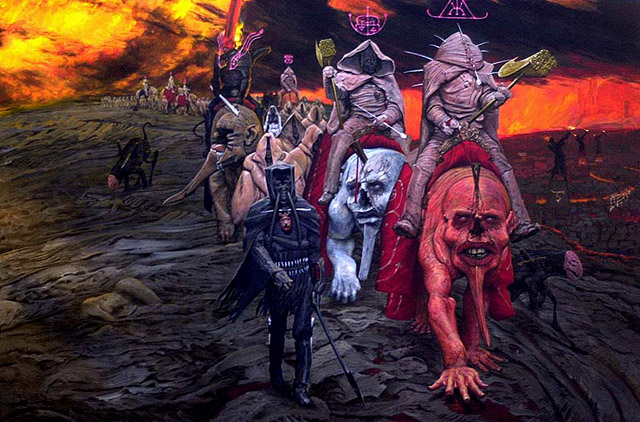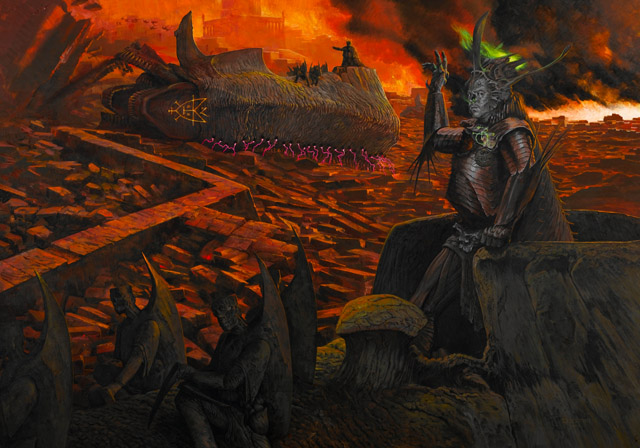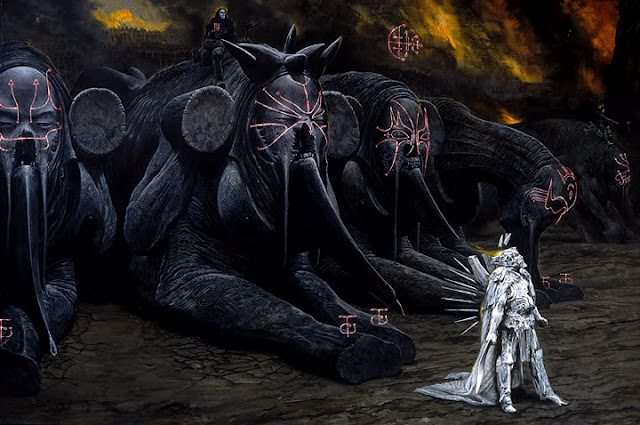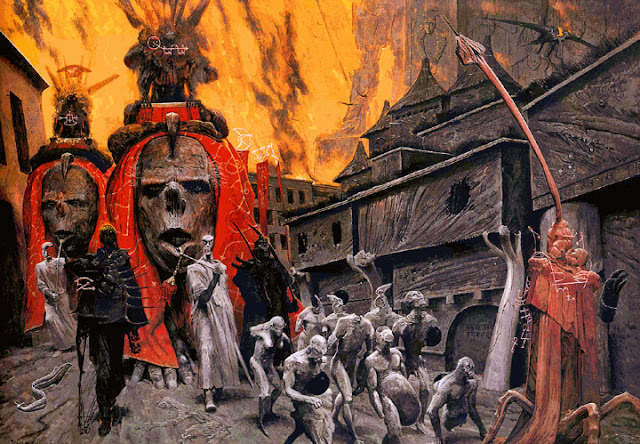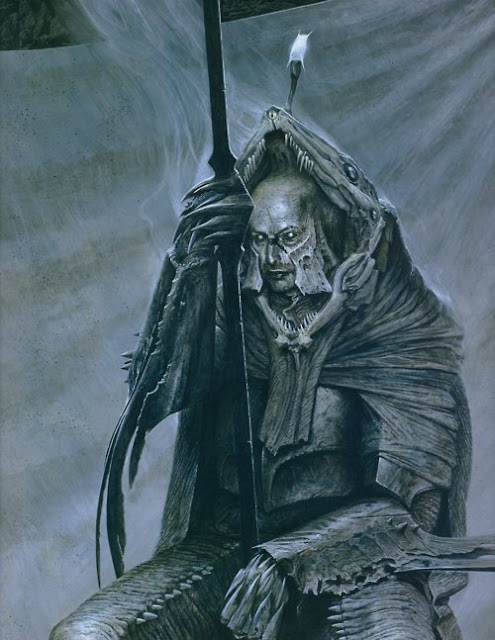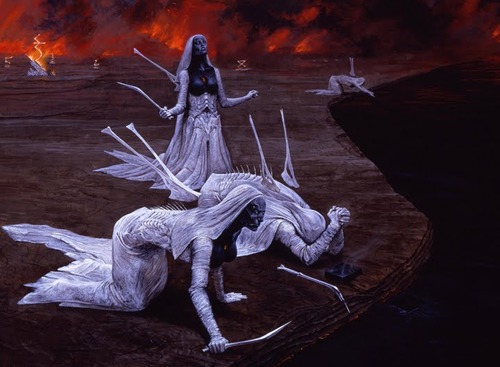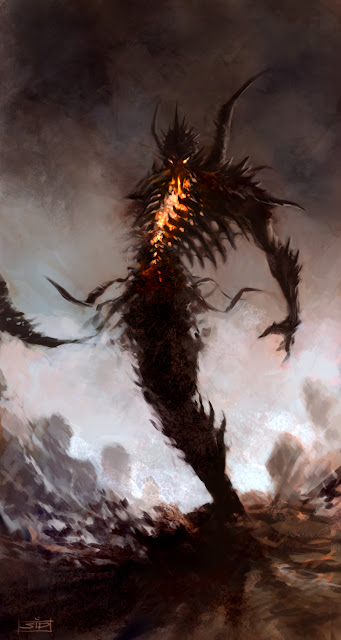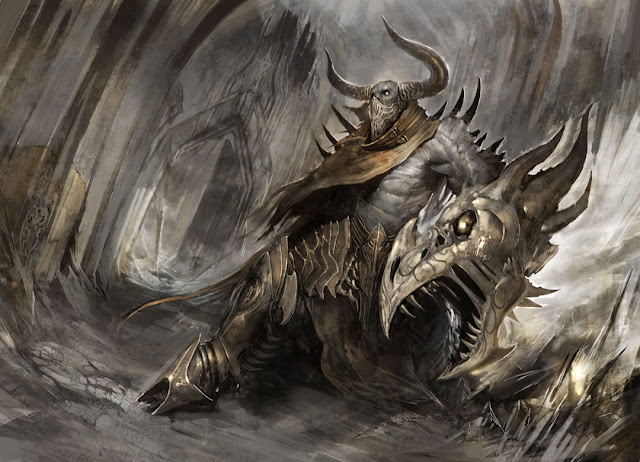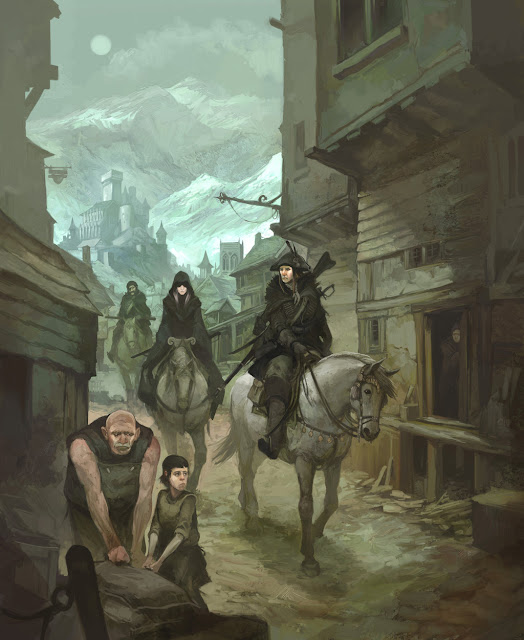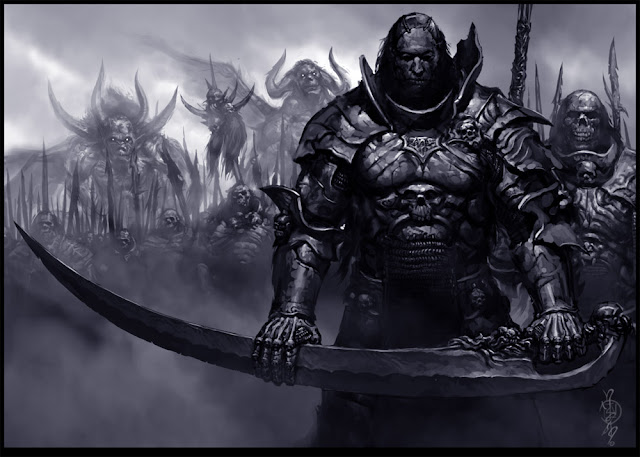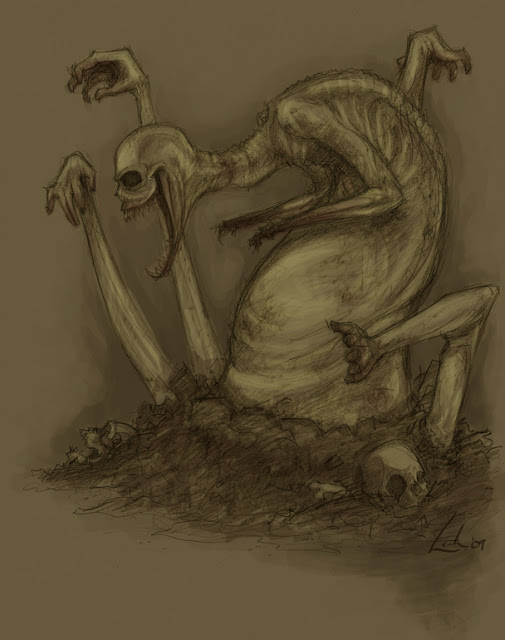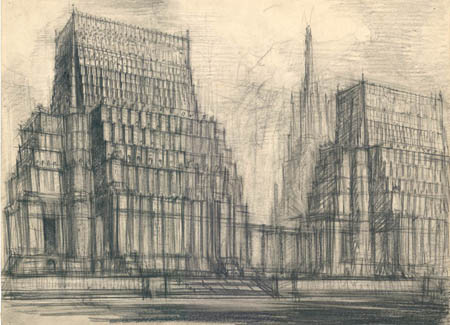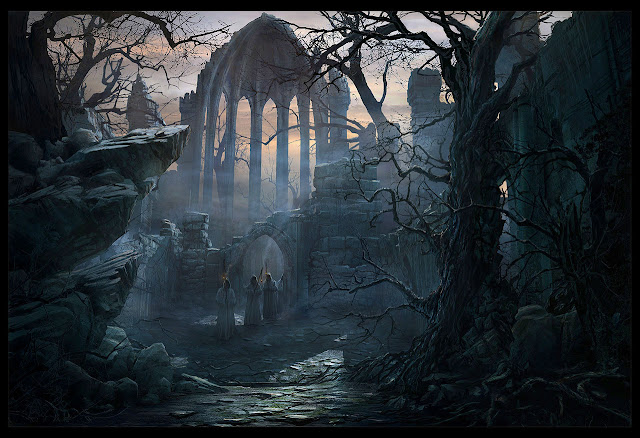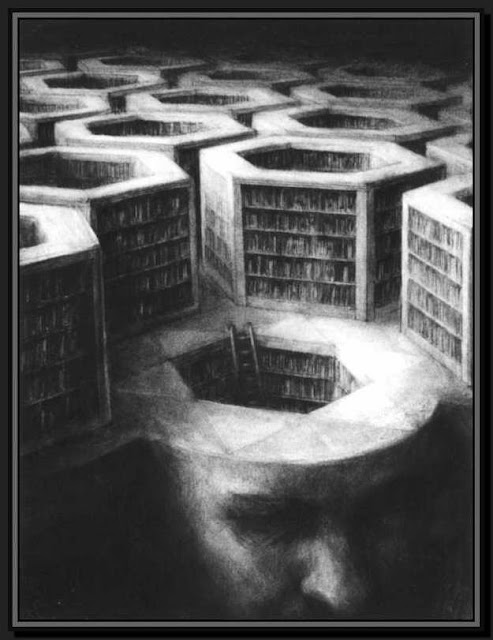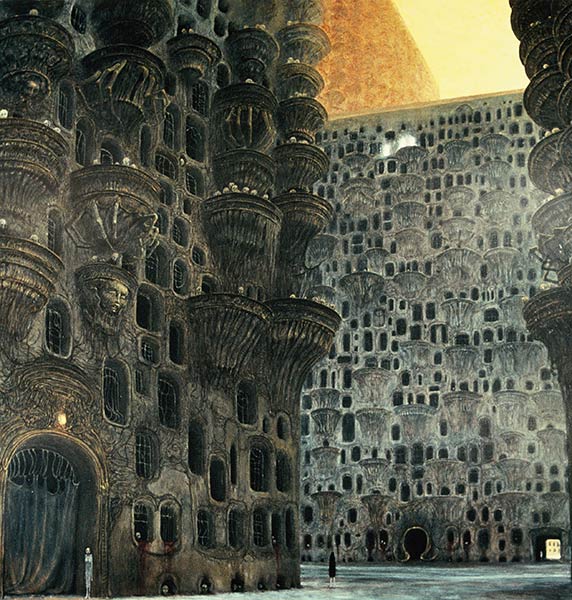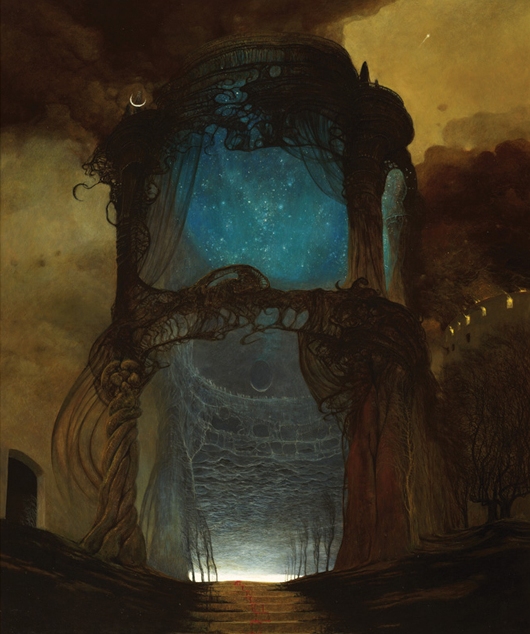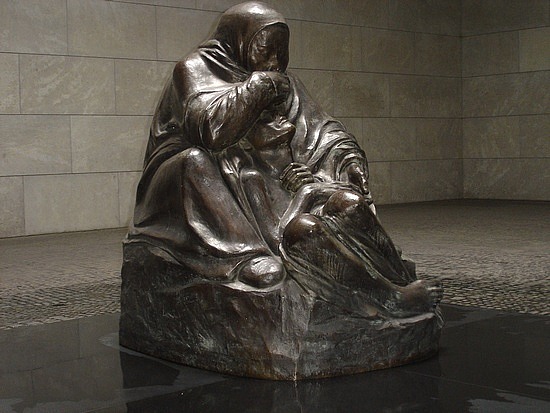Sep 21, 2012
20 x 20 Room's Incredible Essay on Cancer and Dice Mechanics
Jim Henley was diagnosed with tongue cancer and wrote an incredible essay about how his chances of survival, and his conceptions of whether he has good odds or not, differ from the assumptions of roleplaying games. It's hard to explain clearly, so go read it.
Sep 17, 2012
The Long Narrative: Anti-narrativism
MDA: A Formal Approach to Game Design and Game Research goes far beyond the typical Forge nonsense used in theoretical discussion to get into a really useful model for games. It's worth reading, since it bears pretty directly on why I consider myself an "anti-narrative" referee, and what that means.
I want to pull this part out from the beginning: "Fundamental to this framework is the idea that games are more like artifacts than media. By this we mean that the content of a game is its behavior not the media that streams out of it towards the player."
By "anti-narrative", I mean that my primary focus as a referee is not on "telling a story", moving PCs from rising action to rising action until an emotionally cathartic climax is attained, but on presenting interesting and meaningful choices with escalating consequences, and pushing the PCs to decide which option to take. The peaks and troughs on a plot graph for me represent varying levels of PC agency over time. Sometimes they are potent enough to layout all the alternatives and choose freely amongst them, and sometimes they're scrambling to react to a loss of control, and that oscillation takes over from the oscillations of inner character that drive a dramatic plot. The transition between acts tends align between the two models, as an act in a traditional drama is opened or closed by a choice that cannot be undone, whereas under this model, an act is opened or closed by a choice that the PCs must make but cannot exert any agency to layout the options of ("You must either go to war with the Baron or surrender to him. Which will you do?").
I chose this kind of substructure to my games because I find it simplifies the planning for what otherwise appear as traditional story-driven, plot-heavy games. By focusing less on specific events that must happen, and by instead aiming at specific choices that must be made, the substructure is freed from dependence on particular configurations of characters, material, etc. If a single NPC is killed or not, if the PCs steal a specific item, these no longer "sink" a story like they would in a more rigidly-crafted tale. A choice is a virtual entity that can be realised through many possible configurations of characters, material, external events, etc.
In play, this means fewer "cutscenes", fewer invincible NPC badasses, and of course, more meaningful choices (both in quantity and intensity). This method is not "illusionism" - the consequences of PC choice, as the core stake, must be respected, and developed appropriately to the decisions they make. Nor does it have much to do with "narrativism" in the sense of the word used in indie RPGs, which tend to set defined limits on the agency involved rather than varying the agency of the PCs over time (or which vary in only a single, progressive manner encoded in the system itself). "Narrativist" RPGs operate at the level of "mechanics" under MDA, whereas I am talking about doing this on the level of "dynamics" and "aesthetics".
Variance in this kind of substructure is across several factors. First, there is the variance in the stakes of the consequences - some choices are more meaningful, some are less meaningful. I favour being relatively upfront with PCs about which are which in situations where they have more control, and being a bit more opaque in situations where I have more control. Second, there is variance in who has more control, me or the PCs. This is usually obvious - if I'm laying out the options and saying "You have to pick A, B, or C", then I have control. If they're saying "What if we do this? What about this?" then they do. Information, urgency, and resources all serve as subfactors which can be manipulated to adjust their agency.
In any given situation, one structural subgoal should be to vary the level of control and the importance of the consequences across the situation. That is, few situations should start with the PCs at a given level of agency and with a certain set of stakes, and then end at the same level. Either or both factors can increase or decrease, but the change is what produces "dramatic" variety in this kind of structure. The referee is partially responsible for this, but the players are as well. Good play should be capable of minimising the importance of certain stakes (e.g. because you packed plenty of rope, you don't have to worry about falling to your death as you climb the castle walls; because studied the weaknesses of the big bad, the fight is much less risky than it would be otherwise).
Sudden transitions in agency and importance are where surprise comes back in. In traditional dramatic narratives, surprise tends to be driven by misinformation or lack of information, either between characters or to the audience. This is true here as well, but the important thing to bear in mind is that the information in question should relate less to character motivations, plans and plots, and more about the expectations of PCs about how they can deal with these things.
For example, concealing that the big bad is planning to overthrow the kingdom is usually a waste of time. If the PCs don't know what the villain's overarching goal is, they will rarely be invested enough to care about preventing it. Under this model, the surprise is played not in revealing the plan, but in confounding player expectations about what they can do about it. An appropriate scene for this kind of "revelation" would be something like when the players go to the king and tell him about the plot, expecting him to crush the big bad (who is say, an evil minister). Instead, the king refuses to believe them, and insists they stop harassing him with these wild tales unless they have solid proof.
Many times, the kind of story that emerges from this method will be similar to the ones people hope to attain by writing out intricate novelistic plots, but the process itself simplifies and eases attaining these kinds of outcomes while preserving the play experience for PCs. That is, by thinking about the structure of the game in a way that is fundamentally different from being directly concerned with the movements of the narrative, we can incidentally achieve a complex and interesting narrative.
Edit: Courtney and I are on the same page, it looks like. I just saw his recent post on the same topic.
I want to pull this part out from the beginning: "Fundamental to this framework is the idea that games are more like artifacts than media. By this we mean that the content of a game is its behavior not the media that streams out of it towards the player."
By "anti-narrative", I mean that my primary focus as a referee is not on "telling a story", moving PCs from rising action to rising action until an emotionally cathartic climax is attained, but on presenting interesting and meaningful choices with escalating consequences, and pushing the PCs to decide which option to take. The peaks and troughs on a plot graph for me represent varying levels of PC agency over time. Sometimes they are potent enough to layout all the alternatives and choose freely amongst them, and sometimes they're scrambling to react to a loss of control, and that oscillation takes over from the oscillations of inner character that drive a dramatic plot. The transition between acts tends align between the two models, as an act in a traditional drama is opened or closed by a choice that cannot be undone, whereas under this model, an act is opened or closed by a choice that the PCs must make but cannot exert any agency to layout the options of ("You must either go to war with the Baron or surrender to him. Which will you do?").
I chose this kind of substructure to my games because I find it simplifies the planning for what otherwise appear as traditional story-driven, plot-heavy games. By focusing less on specific events that must happen, and by instead aiming at specific choices that must be made, the substructure is freed from dependence on particular configurations of characters, material, etc. If a single NPC is killed or not, if the PCs steal a specific item, these no longer "sink" a story like they would in a more rigidly-crafted tale. A choice is a virtual entity that can be realised through many possible configurations of characters, material, external events, etc.
In play, this means fewer "cutscenes", fewer invincible NPC badasses, and of course, more meaningful choices (both in quantity and intensity). This method is not "illusionism" - the consequences of PC choice, as the core stake, must be respected, and developed appropriately to the decisions they make. Nor does it have much to do with "narrativism" in the sense of the word used in indie RPGs, which tend to set defined limits on the agency involved rather than varying the agency of the PCs over time (or which vary in only a single, progressive manner encoded in the system itself). "Narrativist" RPGs operate at the level of "mechanics" under MDA, whereas I am talking about doing this on the level of "dynamics" and "aesthetics".
Variance in this kind of substructure is across several factors. First, there is the variance in the stakes of the consequences - some choices are more meaningful, some are less meaningful. I favour being relatively upfront with PCs about which are which in situations where they have more control, and being a bit more opaque in situations where I have more control. Second, there is variance in who has more control, me or the PCs. This is usually obvious - if I'm laying out the options and saying "You have to pick A, B, or C", then I have control. If they're saying "What if we do this? What about this?" then they do. Information, urgency, and resources all serve as subfactors which can be manipulated to adjust their agency.
In any given situation, one structural subgoal should be to vary the level of control and the importance of the consequences across the situation. That is, few situations should start with the PCs at a given level of agency and with a certain set of stakes, and then end at the same level. Either or both factors can increase or decrease, but the change is what produces "dramatic" variety in this kind of structure. The referee is partially responsible for this, but the players are as well. Good play should be capable of minimising the importance of certain stakes (e.g. because you packed plenty of rope, you don't have to worry about falling to your death as you climb the castle walls; because studied the weaknesses of the big bad, the fight is much less risky than it would be otherwise).
Sudden transitions in agency and importance are where surprise comes back in. In traditional dramatic narratives, surprise tends to be driven by misinformation or lack of information, either between characters or to the audience. This is true here as well, but the important thing to bear in mind is that the information in question should relate less to character motivations, plans and plots, and more about the expectations of PCs about how they can deal with these things.
For example, concealing that the big bad is planning to overthrow the kingdom is usually a waste of time. If the PCs don't know what the villain's overarching goal is, they will rarely be invested enough to care about preventing it. Under this model, the surprise is played not in revealing the plan, but in confounding player expectations about what they can do about it. An appropriate scene for this kind of "revelation" would be something like when the players go to the king and tell him about the plot, expecting him to crush the big bad (who is say, an evil minister). Instead, the king refuses to believe them, and insists they stop harassing him with these wild tales unless they have solid proof.
Many times, the kind of story that emerges from this method will be similar to the ones people hope to attain by writing out intricate novelistic plots, but the process itself simplifies and eases attaining these kinds of outcomes while preserving the play experience for PCs. That is, by thinking about the structure of the game in a way that is fundamentally different from being directly concerned with the movements of the narrative, we can incidentally achieve a complex and interesting narrative.
Edit: Courtney and I are on the same page, it looks like. I just saw his recent post on the same topic.
Sep 16, 2012
Subscribe to:
Posts (Atom)


